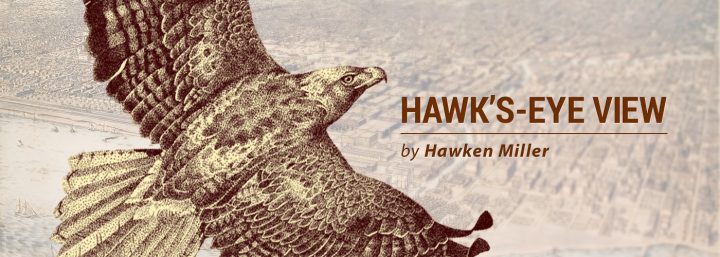Friendships Matter: You Don’t Have to Deal with Duchenne Alone
Written by |

I recently participated in a panel discussion at CureDuchenne 2019 Futures titled “Friends.” I gave a brief presentation, along with other members of the disease community, on the importance of friendship. From the responses we received, it was clear to us that many parents present at the event were worried about their children’s social development.
Understanding friendships and how to develop and maintain those bonds is crucial to finding fulfillment with Duchenne.
Genuine friends talk to each other and share life’s ups and downs. They have each others’ “sixes.” I value a friend who is willing to help me with physical tasks while putting up with my sarcasm and attempts to make them laugh. I want to help my friends by being a sounding board when they want to talk out their problems and be there for them during times of heartache.
Finding a group to hang out with is the first step on the path to friendship — and it’s often the most challenging part of the process. When I was younger, many of my peers bonded over their love of playing sports and participation in physically demanding activities. I had to sit out bouncy castle birthday parties and trips to adventure parks. I didn’t get invited to many of the big high school gatherings. I shed many tears of disappointment and felt left out. However, the situation changed toward the end of high school and in college.
After elementary and middle school, my peers’ interests moved away from sports and toward academics, popular culture, and video games. My guy friends started to notice girls around this time. I fit in a little better then, but it was difficult. I made wonderful friends in high school and beyond, but still suffered from social anxiety.
My best advice for adolescents with Duchenne is to forge your own path and befriend those who share your outlook and interests. I joined my high school’s publications team. We produced The Bolt student newspaper, managed The Bolt news website, and published the school yearbook.
I made fantastic friends with others who shared my passion for journalism. At the University of Southern California, I formed new bonds through my associations with the Daily Trojan, USC Annenberg Media, and the campus ministry, Christian Challenge.
High school and college parties aren’t much fun anyway — at least they weren’t for me. I didn’t care about receiving invitations to the popular kids’ parties because I made friends while engaging in activities I enjoyed. I kept my earlier bonds and expanded my circle of friends. I made some of my best friends during my last two years in high school and in college. So don’t worry if you are struggling with friendships — the best is yet to come.
Friendship, like any other relationship, should be appreciated and taken seriously. You need to work to be successful at maintaining your bonds. Navigating the path of friendship isn’t always easy, but it’s well worth the effort.
Learn to be a good friend by listening to what your pal has to say, offering them help when they need it, and being open, honest, and trustworthy. Like any relationship, it’s a two-way street and you get what you put into it. With some good friends by your side, you don’t have to take on Duchenne alone.
***
Note: Muscular Dystrophy News is strictly a news and information website about the disease. It does not provide medical advice, diagnosis, or treatment. This content is not intended to be a substitute for professional medical advice, diagnosis, or treatment. Always seek the advice of your physician or another qualified health provider with any questions you may have regarding a medical condition. Never disregard professional medical advice or delay in seeking it because of something you have read on this website. The opinions expressed in this column are not those of Muscular Dystrophy News or its parent company, Bionews Services, and are intended to spark discussion about issues pertaining to muscular dystrophy.






Jerry & Mary Ann
Great article Hawken, & Thanks for being such a good friend @ Grandson of mine & Grandma Mary Ann. Sent with Much Love! !
Elena
It is a great article. I think it could help young people with MDS to find themselves first and sure friends who they share common interests with.